It’s that time of year to reflect on “The List”: The Ten Best Of list, that is. This year was really tough (not unlike the 2008 best of list!), because there were so many show episodes I could have included. I was a bit chagrined that it was so dominated by men — I strive for gender balance in these lists — but so many of the guys wrote books of such heart and human compassion (Tracy Kidder, Abraham Verghese, Nicholsen Baker, Tyler Boudreau) that I just had to include them. Browse through the list and enjoy!
Yearly Archives: 2009
The Book As Art
Podcast: Play in new window | Download
Subscribe: Apple Podcasts | RSS

Artist and writer Matthew Rose talks about the unbound book of art postcards he curated, A BOOK ABOUT DEATH. It’s a collection of 500 limited edition postcards on the theme of death, each one created by an artist for the exhibition. And George Monbiot and Bill McKibben talk about climate change. Continue reading
Theater for the People and Recipes for Hard Times and Cooking Healthy
Podcast: Play in new window | Download
Subscribe: Apple Podcasts | RSS
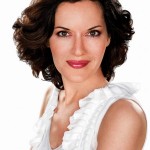

Guest host Chris Rohmann interviews Los Angles Times drama critic Kenneth Turan about FREE FOR ALL: Joe Papp, The Public, and the Greatest Theater Story Ever Told. It’s about the how Joseph Papp founded the New York Shakespeare Festival and the Public Theater. Then Suzan Colon tells us about her memoir, CHERRIES IN WINTER: My Family’s Recipe for Hope in Hard Times. Finally, we talk about THE HEALTHY COLLEGE COOKBOOK with editor Rachel Holcomb. Continue reading
Adapting to, Controlling and Solving The Climate Crisis
Podcast: Play in new window | Download
Subscribe: Apple Podcasts | RSS

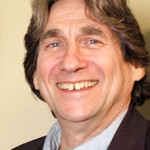
Harvey Wasserman tells us about SOLARTOPIA, his vision of 2030’s clean energy world. And ecologist Amy Seidl tells us how we can adapt to climate change while trying to control it. Her book is EARLY SPRING. Continue reading
Saved by the Kindness of Strangers
Podcast: Play in new window | Download
Subscribe: Apple Podcasts | RSS
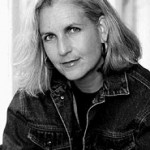
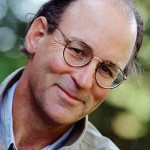
Tracy Kidder talks about STRENGTH IN WHAT REMAINS. It’s the story of a young Tutsi refugee from the genocide in Rwanda & civil war in Burundi who comes to the US and creates a new life. He’s helped along the way by others — and eventually is able to bring his own considerable gifts and passion back to his homeland to help others. And Terry Tempest Williams talks about her visit to Rwanda in an excerpt from our interview with about her book, MOSAIC, in 2008. Continue reading
Web Extra: James Douglass on Lee Harvey Oswald
Podcast: Play in new window | Download
Subscribe: Apple Podcasts | RSS
James Douglass tells Writers Voice more about Lee Harvey Oswald.
Listen to the full show here.
Why JFK Died and Why It Matters: Jim Douglass, JFK AND THE UNSPEAKABLE
Podcast: Play in new window | Download
Subscribe: Apple Podcasts | RSS
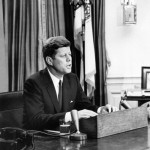
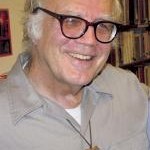
Christian theologian and peace activist James W. Douglass tells us why he thinks JFK was assassinated. He says it was because Kennedy went up against the military-industrial complex and the national security state. His carefully researched book is JFK AND THE UNSPEAKABLE. Continue reading
The Will To Resist
Podcast: Play in new window | Download
Subscribe: Apple Podcasts | RSS
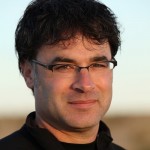
“Unembedded journalist” Dahr Jamail tells us about the profound impact on veterans of the wars in Iraq and Afghanistan — and how they are fighting back. We also talk with mystery novelist Lisa Kleinholz, cookbook author Lora Brody and journalism prof and blogger B.J. Roche — they’re all panelists on the upcoming Write Angles writers conference taking place Nov 21, 2009 at Mount Holyoke College. Continue reading
Diaries of Disaster
Podcast: Play in new window | Download
Subscribe: Apple Podcasts | RSS


Francine Prose talks about her terrific new book, ANNE FRANK: THE BOOK, THE LIFE, THE AFTERLIFE. It shines a writer’s lens on Frank’s diary and on its postwar reception in the U.S. and elsewhere. And Israeli journalist Amira Hass tells us about her mother’s DIARY OF BERGEN BELSEN, a searing account of moral courage in the face of unrelenting brutality. Continue reading
What Do We Learn About History From Novels?
Podcast: Play in new window | Download
Subscribe: Apple Podcasts | RSS
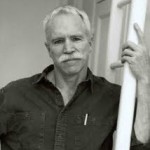
We hear excerpts from a dramatic reading of Ernest J. Gaines’ novel, A LESSON BEFORE DYING by Enchanted Circle Theater actors. It’s about a young black man in Jim Crow Louisiana who is condemned to death. And we interview Thad Carhart about his new historical novel, ACROSS THE ENDLESS RIVER. It’s about Jean Baptiste Charbonneau, the son of Sacagawea who was a guide on the Lewis and Clark expedition and who lived both in the United States and Europe. Continue reading
Web Extra: A Dramatic Reading By Enchanted Circle Theater
Podcast: Play in new window | Download
Subscribe: Apple Podcasts | RSS
[amazon-product align=”right”]0375702709[/amazon-product]
Published in 1997—and an Oprah favorite— [amazon-product text=”A LESSON BEFORE DYING” type=”text”]0375702709[/amazon-product] was chosen as this year’s selection for One Book Holyoke, a community project based on the idea of the Big Read, a program by the National Endowment for the Arts to encourage reading.
One activity was a dramatic reading by the Holyoke based company, Enchanted Circle Theater. They compressed the action of the book into a dramatic script of about an hour and a half. Writers Voice went to a reading at Holyoke City Hall for an audience of local high school students. You can listen to the entire reading here, but we air excerpts on the show.
It’s Getting Spooky Out! The Halloween Show
Podcast: Play in new window | Download
Subscribe: Apple Podcasts | RSS
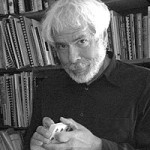
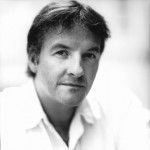
Irish mystery writer John Connolly tells us about his new spine-tingling and funny bone-tickling thriller for smart teens, THE GATES. And we air an archived interview with magician Alan Kronzek about THE SORCERER’S COMPANION, A Guide to the Magical World of Harry Potter. Continue reading
Dying for the Story and Living Better on Less
Podcast: Play in new window | Download
Subscribe: Apple Podcasts | RSS
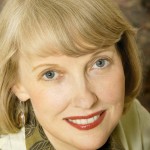
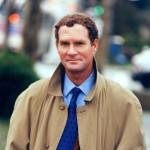
Investigative journalist Terry Gould talks about his book, MARKED FOR DEATH: Dying for the Story in the World’s Most Dangerous Places. It explores the stories of seven journalists who exposed the truth — even though they knew they’d be killed for their work. And Wanda Urbanska of the TV show Simple Living tells us the secret of genuine happiness. She edited LESS IS MORE with Cecile Andrews. Continue reading
Are You Ready For Fire, Brimstone, Love And Writer’s Block?
Podcast: Play in new window | Download
Subscribe: Apple Podcasts | RSS

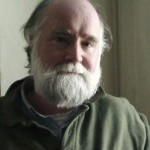
Nicholson Baker talks about his new novel, THE ANTHOLOGIST. His hero Paul Chowder is looking back over his whole life and wondering what it’s amounted to. He’s also facing the dreaded disease: writer’s block. And Susan Stinson is just finishing her new novel, SPIDER IN THE TREE. She tells us about her protagonist, the 18th century preacher Jonathan Edwards who preached fire and brimstone — and love. Continue reading
What’s An Economy For, Anyway?
Book Review
Last night I visited a local pub with an old friend I hadn’t seen in decades. He’s in town to talk to college students about his new film, What’s An Economy For, Anyway? It’s a good question. And John de Graaf, the filmmaker, comes up with a good answer. He says an economy is for “the greatest good for the greatest number over the long haul.”
[amazon-product align=”left”]1576753573[/amazon-product]
De Graaf is best known for his film (and book) [amazon-product text=”Affluenza: The All-Consuming Epidemic” type=”text”]1576753573[/amazon-product], one of the first popular works to point out that our obsessive quest to amass more stuff (and the money to buy it) is destroying our communities, our health, and our planet. It came out before the U.S. was confronted with a sudden, drastic cure to its “affluenza” in the shape of an economic meltdown that is seriously crimping the buying habits of the American consumer.
An upside to the downside of the recession?
Over a glass of Merlot, de Graaf told me there’s an upside to the downside of the recession (or “jobless recovery”, as it’s being termed now): health improves during recessions. As people spend less, they have more time for proven health boosters such as sleeping more, volunteering in their community, and getting together with friends and family. They drive less, smoke less, drink less, eat less artery-clogging rich foods — and of course, have less work-related stress. And that’s despite the fact that unemployment has often been associated with higher rates of suicide, domestic violence and chronic illness, not to speak of the potential consequences of losing one’s health insurance.
In other words, maybe “less is more”, at least after we are assured a basic package of goods and services to support our well being: decent health care, housing, education, a living wage job and a healthy environment. That’s what another new book of that title, edited by John de Graaf’s good buddies Cecile Andrews and Wanda Urbanska, says.
[amazon-product align=”right”]0865716501[/amazon-product]
[amazon-product text=”LESS IS MORE: Embracing Simplicity for a Healthy Planet, A Caring Economy, and Lasting Happiness” type=”text”]0865716501[/amazon-product] brings together a host of writers who have contributed much to the discourse about “what’s an economy for”. Aside from de Graaf, who contributes a chapter with that title, they include Bill McKibben (DEEP ECONOMY), Ernst Callenbach (ECOTOPIA), David Korten (AGENDA FOR A NEW ECONOMY) and Juliet Schor (THE OVERSPENT AMERICAN).
Schor is cofounder of The Center for the New American Dream, a non-profit dedicated to helping Americans “consume responsibly to protect the environment, enhance quality of life, and promote social justice.” Her chapter in Less Is More is called “Down-shifting To A Carbon-Friendly Economy.”
[sniplet amazon search]
She starts out with an idea she calls the “third rail in American politics”: that per capita consumption has to go down in the US “to achieve sustainable levels of greenhouse gas emissions”. To those who claim that sustainability can be achieved simply by increasing efficiency, she points to the paradox that as efficiency rises, so does consumption (e.g. more efficient cars = more miles driven). She also says those who put their faith in such greening methods as “Factor Four” and zero waste are overly optimistic.
But, Schor says, we can “downshift” to an economy that “meets people’s needs”, allows for a “healthy, well-functioning” private enterprise economy, and achieves carbon neutrality. She says that by workers trading money for time, consumer demand falls, thereby lowering the stress on the environment. Employment can actually rise, by decreasing per worker hours and spreading work among more people. Of course, per hour compensation would have to rise, or be compensated for by greater social provision of needs like health care, housing subsidies, and education. Countries such as the Netherlands, Germany and Denmark are all models of prosperous capitalist economies with fewer work hours and lower per capita consumption.
[sniplet amazon bookstore widget]
Downshifting our economy to reach carbon neutrality is a must if we are to adapt our communities to the double whammy of climate chaos and resource depletion. So says a short but pithy book by David Holmgren, one of the originators of permaculture as an idea. [amazon-product text=”Future Scenarios: How Communities Can Adapt to Peak Oil and Climate Change” type=”text”]1603580891[/amazon-product] lays out four options human societies face.
The “Brown-Tech” scenario happens with extreme climate change coupled with a slow decline in fossil fuel use. It involves “corporate fascism” imposing top down solutions to the crises, wringing every last drop out of fossil fuel resources, with authoritarian governments enforcing stability as living standards for the majority drastically decline.
The Green Tech scenario results if climate change turns out to be more benign. A “distributed powerdown” slowly reduces fossil fuel use while increasing conservation of resources and technological innovation. (For a fascinating — and optimistic — exploration of what this could look like, check out Harvey Wasserman’s book, [amazon-product text=”SOLARTOPIA! Our Green-Powered Earth, A.D. 2030″ type=”text”]0975340247[/amazon-product].)
The Earth Steward scenario involves a rapid decline in fossil fuel use due more to economic collapse and the resulting political “stresses” (wars) than to climate change, which is mild also in this scenario. But the resulting collapse of society engenders a bottom-up renewal, with re-localized economies and a simplified technology base.
The final Lifeboat scenario is the most pessimistic. In it, climate catastrophe and fossil fuel depletion lead to widespread death through famine, wars and climate disasters, with a halving of global population. Human civilization is in triage mode, with oases of sustainable social organization, knowledge and technology preserving the possibility for some future recovery in the long term.
Faced with this dire prediction, perhaps the shocked reader will want to turn to Ralph Nader’s new book, [amazon-product text=”“ONLY THE SUPPERRICH CAN SAVE US!”” type=”text”]1583229035[/amazon-product]. (He’s an upcoming guest on Writers Voice) Maybe the planet’s lifeboat will turn out to be — a yacht.
